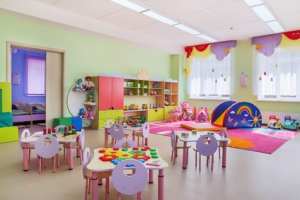Zolwie dla malych dzieci zdecydowanie nie.

Podobnie zreszta wezyki, jaszczurki, gekony i zabki. Juz od paru lat co najmniej mowi sie o tym, ze sa one nosicielami salmonelli.
Wytwarzaja ja samoistnie dla utrzymania wlasciwej flory czy jakos tak.
U nas (UK ) w kazdej przychodni wisi takie ostrzezenie. Sklepy zoologiczne tez sprawdzaja czy to bedzie np pod scislym nadzorem doroslego(i nie kobiety w ciazy), czy w domu jest male dziecko itd.
Oczywiscie mozna miec zolwia, ale najlepiej w terrarium, myc dokladnie rece po kazdym kontakcie.
Niestety nie mam czasu przetlumaczyc tego ale kilka info po ang.
What is Salmonella? People at the pet stores went on and on about it. I have children...should I get rid of the turtle?
[Mark Verduin]
Reptile - associated salmonellosis is not a new phenomenon; in the early 70's pet turtles were responsible for an estimated 280,000 cases in the US each year, leading to a ban on all interstate shipment of pet turtles with a carapace length of less than 4 inches. After this ban, there were an estimated 100,000 fewer annual cases of turtle-related salmonellosis ocurring in children from 1 to 9 years of age. However, the rate of reptile-associated salmonellosis has been steadily increasing since 1980, probably due to increased popularity of reptiles as pets, mainly the common green iguana.
1) Reptile owners should ALWAYS wash their hands after handling reptiles and their cages.
2) Persons at increased risk for infection or serious complications (i.e., children under 5 yrs of age and immuno compromised persons) should avoid contact with reptile pets.
3) Reptiles should not be kept in households with children under 1 yr of age or immunocompromised persons; families expecting new children should give away their pet reptiles before the baby arrives.
4) Reptiles should not be kept in child-care centers (This is already law in many states).
5) Reptiles should not be allowed to roam freely throughout the house.
6) Reptiles should be kept out of kitchens and other food preparation areas to prevent contamination. Kitchen sinks should NOT be used to bathe the animals or wash the animals' dishes, cages, or aquariums. If bathtubs are used for these purposes, they should be throughly cleaned and sanitized afterwards.
#######################
Reptiles such as turtles, snakes and lizards are becoming increasingly popu-lar as pets, but they harbor Salmonella bacteria that can make life miserable for humans. The bacteria cause salmonellosis, an infection of the human intestinal tract that usually manifests itself as diarrhea, abdominal cramps, fever and sometimes vomiting. In rare cases, it can be life- threatening.
Even when owners try to keep their reptiles and cages clean, Salmonella can be on the animal, on the cage, or on the carpet that the pet crawled across while the owner was cleaning the cage, experts say. "Any place the reptile has crawled, he can leave a thin veneer of Salmonella behind," said Dr. Fred Angulo, a medical epidemiologist with the federal Centers for Disease Control and Prevention.
The CDC recommends that reptiles not be kept in homes that have children younger than age 5. The animals also should not be kept in preschools and day-care centers, the CDC says. "Despite educational efforts, some reptile owners remain unaware that rep-tiles place them and their children at risk for salmonellosis," the agency said in a recent report.
Oczywiscie nie jest to 100%towe ryzyko ale jednak...
Dzieci chcialy zolwia, maz marzy o jakims wezyku niejadowitym czy innej iguance,ale ja sie nie podejmuje scislej kontroli, pilnowania by nie dotykaly itede, wiec puki co damy sobie spokoj











 śro, 20 sie 2003 - 09:43
śro, 20 sie 2003 - 09:43










